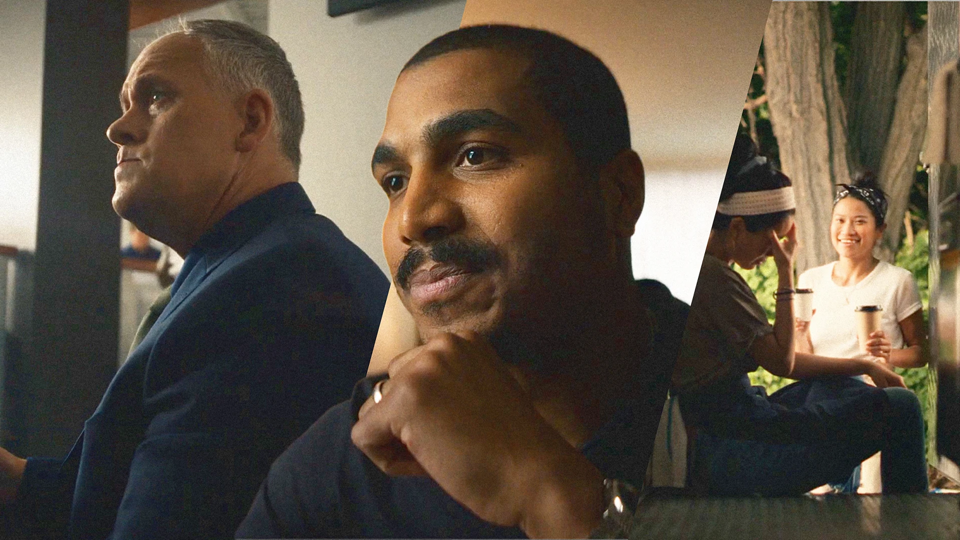Progressive’s commercials go big on humor. Now they’re going big on feelings, too
Progressive’s commercials go big on humor. Now they’re going big on feelings too
Progressive CMO Remi Kent is tapping into the brand’s corporate altruism for a new campaign during a fraught time for insurance companies.
BY Jeff Beer
Progressive Insurance has gifted more than 1,000 vehicles to veterans in need since 2012 through its Keys to Progress program. The company has worked with small business owners by offering better access to capital with its Driving Small Business Forward grant program. And since 2020, it has worked with nonprofit Humble Design to furnish homes for the homeless.
Now Progressive is shining a spotlight on this work, taking it from behind the scenes to being a more visible part of its brand work. The company’s new purpose statement is, “We exist to help people move forward and live fully.” And CMO Remi Kent says that this clear articulation is about uplifting and building on what the company is already doing.
“I kept hearing people here talk about this secret sauce inside of Progressive that they wish more people knew about,” says Kent, who joined Progressive from 3M in 2021. “They want the world to know about the integrity, the care, and the heart of the company. We lead with humor, so people don’t really see all of what Progressive is truly about. And I thought that was an opportunity.”
It’s also an opportunity to push its dependability and corporate altruism at a time when home insurance premium costs have been skyrocketing. The reasons behind these hikes have been credited to extreme weather. Last year, for example, the National Oceanic and Atmospheric Administration (NOAA) reported a record 28 different billion-dollar weather and climate disasters. Meanwhile, Progressive has seen surging revenues from its home insurance business and also a boost in auto insurance demand.
More than a laugh
Most people only interact with insurance companies when something goes wrong. It’s an incredibly serious business when you’re dealing with people’s health, homes, cars, and livelihoods. There are examples of insurance marketers mirroring that severity, whether it’s Nationwide’s infamous, 2015 “dead kid” Super Bowl ad or the tearjerker wizards at Thai Life Insurance.
But in the U.S., insurance brands for years have been overwhelmingly using humor to get our attention. Dr. Rick and Flo for Progressive. Geico’s Gecko. Jake from State Farm. Allstate’s Mayhem. All memorable in their own way, forging an emotional connection—and maybe a new customer—by making us laugh.
Kent says Progressive’s funny ads do still play a crucial role. “We lead with humor right now, and I think what we want to show is that we have humor and heart,” she says. “This purpose platform gives us the opportunity to share our heart and our values and how we operate, and we believe that more customers will choose us for that reason.”
Not cause marketing
Over the past decade, there has been a lot of murky marketing around the idea of purpose. Various consumer studies over that time have said people wanted to spend money with brands that reflected their values; this forced many brands to quickly manufacture some, well, values, and then ads that hyped them. This resulted in mass eye-rolling, and the now-classic SNL skit “Pitch Meeting.”
Kent says that by going back into the company’s history of serving the underinsured, and amping up its more recent work like the veteran vehicle program, small business grant program, and helping the unhoused find housing, is an authentic way to tap into Progressive’s purpose-driven work. “Sometimes I think purpose turns into cause marketing, and that’s not what we’re about,” she says. “As a marketer, I’m looking for the reveal, I’m not looking for the creation. Luckily, here we were able to reveal and articulate this idea of move forward and live fully. Because when you have a setback, we help you move forward, but the confidence that we’re going to deliver on our promises helps you also live fully.”
Kent’s goal is to find the intersection between providing products to consumers, but also working where society needs help. She points to home insurance as an example.
“That’s the product, providing home insurance is what we do in our business model,” says Kent. “But helping more people get into homes is what we do for society, and that’s our purpose work.”
Marketing will help spotlight and support this work, but it’s not the reason for it. “We’re more about the actions than the ads.”
ABOUT THE AUTHOR
(42)



